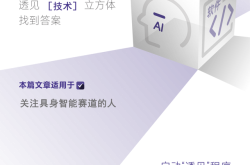Will Chromebook, a North American Hit, Be Outpaced by Cloud Computers?
![]() 03/17 2025
03/17 2025
![]() 660
660
When discussing Google's most successful products, opinions may vary. However, if we consider Google's "top ten successful products," Chromebook, a laptop developed based on the Chrome browser, undoubtedly makes the list. Nevertheless, the recent decision by the US Department of Justice to mandate the sale of Chrome due to alleged monopolistic concerns has left Chromebook, the king of the North American and European education markets, in a precarious position, facing significant challenges.
After all, the Chrome browser is the cornerstone of Chromebook. Without Chrome, what does the future hold for Chromebook?
King of the Education Market
Perhaps many domestic users are unfamiliar with it. In essence, Chromebook is a laptop running Google Chrome OS. Unlike traditional Windows and macOS systems, Chrome OS primarily relies on cloud services, with users spending most of their time working within the browser. Even when used offline, Chromebook synchronizes cloud messages once connected to the internet.
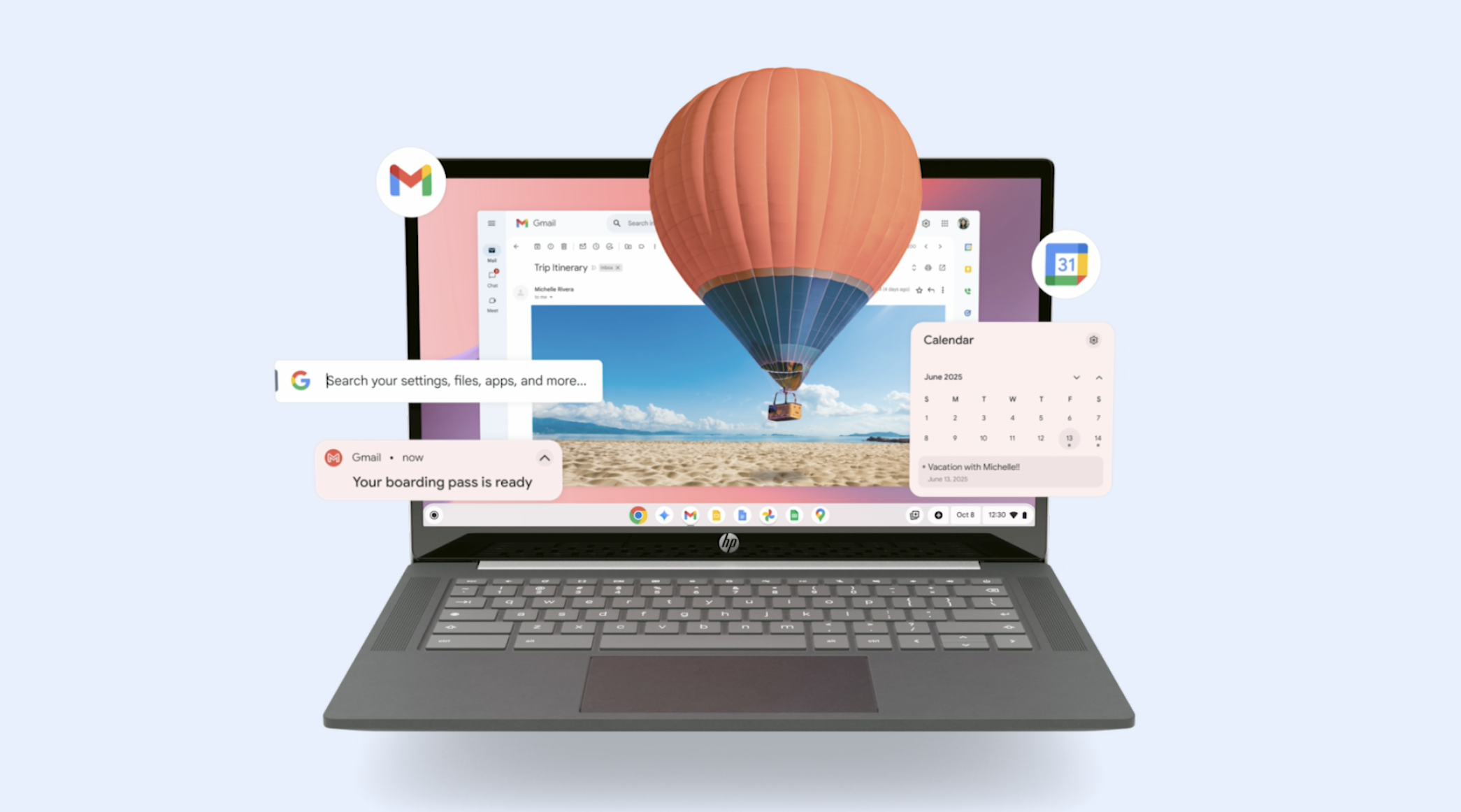
Image source: Google
In a nutshell, the operating logic of Chromebook is to "provide a hardware platform for the Chrome browser." Anything you can do with the Chrome browser, you can also do on a Chromebook; if the Chrome browser can't do it, Chromebook probably can't either (we'll delve into the case of Android apps later).
Moreover, because Chrome OS's functionality is so streamlined - maintaining a browser is sufficient - Chromebook's hardware requirements are incredibly minimal: In the Windows camp, the nearly entry-level Core i3 is already considered mid-range in Chromebook, and most Chromebooks even utilize Intel Celeron, Pentium, or directly opt for ARM-based mobile chips.
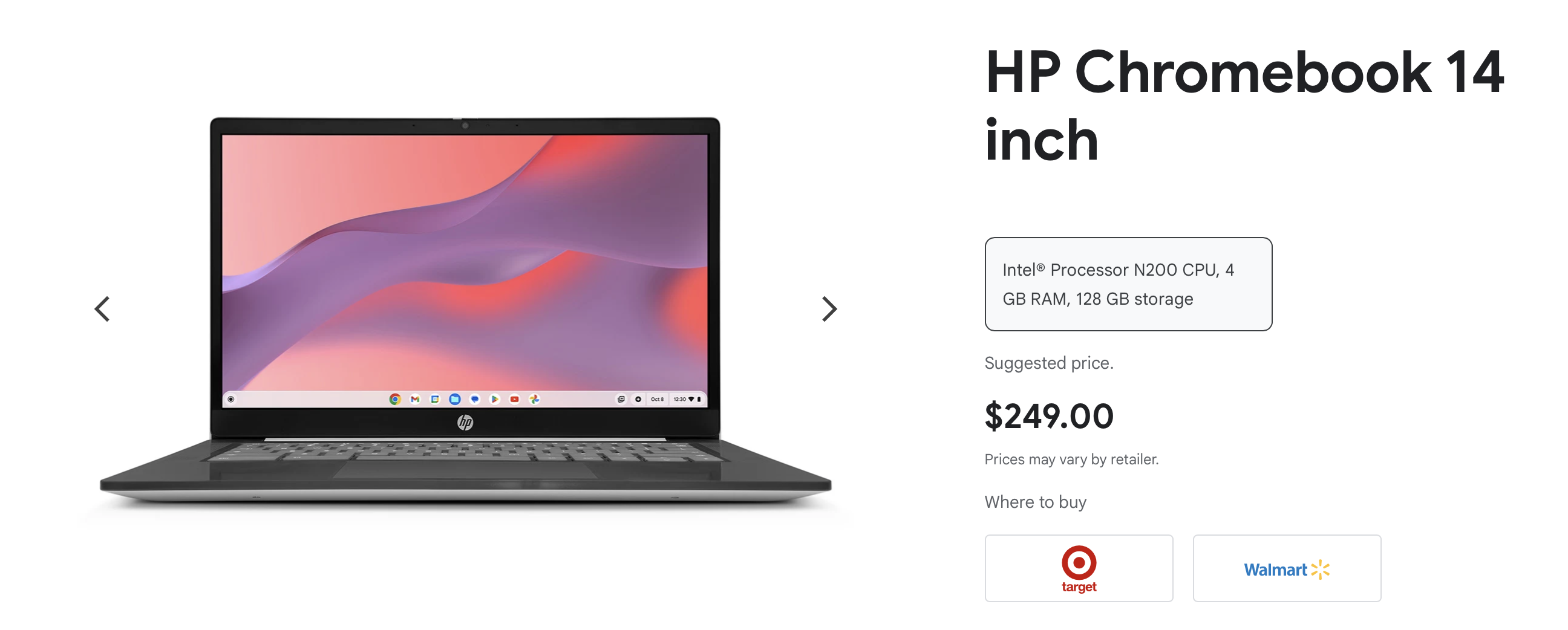
Image source: Google
These minimal hardware requirements allow Chromebook to offer an exceptionally high cost-performance ratio. During the CES 2025 coverage earlier this year, I visited multiple electrical appliance stores in the United States (stores with a unique online and offline same-price system in the North American region). Based on my observations, the pricing for a "decent" laptop running Windows is generally above $450 (RMB 3,250), whereas below $350 (RMB 2,500), consumers can only opt for Chromebook.
With extremely low costs and a deeply integrated ecosystem with Google (Google provides a plethora of web-based online documents and education management services), Chromebook has dominated the North American education market in recent years:
Firstly, as mentioned, Chromebook's hardware costs are incredibly low, and the browser-based Chrome OS operating system makes it difficult for malware to significantly harm the computer system itself due to application sandbox restrictions. This significantly reduces the pressure and cost of IT operations and maintenance for schools, making Chromebook naturally suited for the "education market."
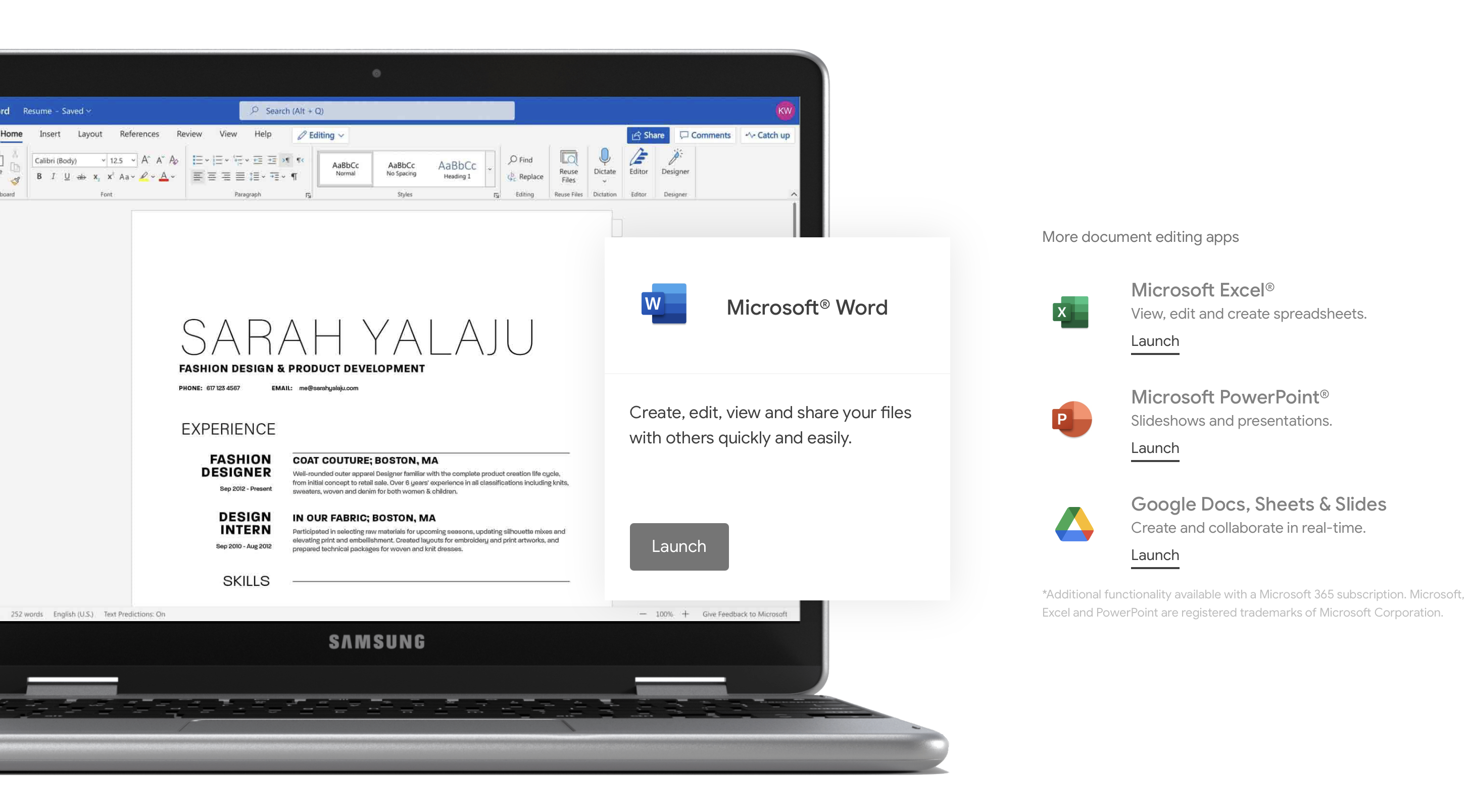
Image source: Google
Secondly, the operating experience of Chrome OS is straightforward and clear - it's essentially just a browser, which significantly lowers the learning threshold for teachers and students, eliminating the need for complex configurations and software installations. Furthermore, Chromebook relies almost entirely on cloud services, and all files and data can be automatically synchronized to Google Drive, virtually eliminating the risk of data loss.
The new generation of Chromebook can also run some Android software locally, enhancing its versatility. For educational institutions, Chromebook also offers a centralized management solution (MDM), making the deployment and updating of educational software remarkably simple.
It can be argued that Chromebook has broken the technical barriers of traditional laptops in the education market and has become the go-to choice for schools and educational institutions seeking digital transformation with extremely low prices and efficient cloud computing.
Can the Chromebook Concept Take Root in China?
Amid the wave of digital education, the Chromebook concept, reliant on cloud services, has achieved remarkable success in the education markets of North America and Europe. However, China's education system is also undergoing digital transformation. Is the Chromebook cloud computer concept feasible in China?
Firstly, from a cost perspective, the Chromebook concept of basic hardware + browser + cloud service is highly suitable for the domestic market. The domestic student market is vast, and low-cost laptops based on mature supply chains and manufacturing processes like Chromebook are expected to have even lower hardware costs when encountering the scale of the domestic market, making a terminal selling price of around RMB 1,000 feasible.
Secondly, compared to small-screen digital education in the form of mobile phones, the product form of computers (laptops) is more aligned with the actual needs of students.
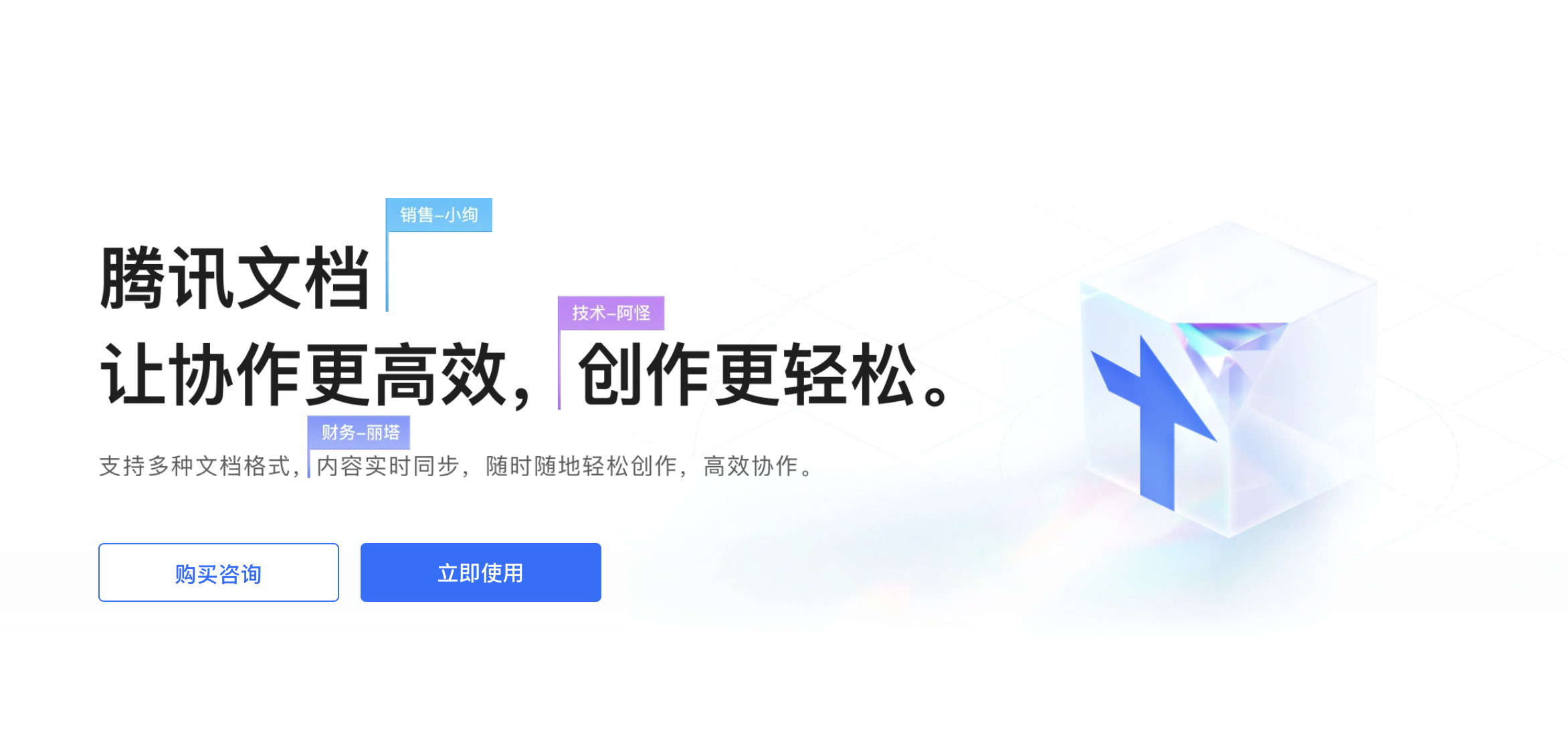
Image source: Tencent Docs
Moreover, in terms of ecosystem, domestic cloud service providers (Alibaba Cloud, Tencent Cloud) have been developing for many years, and domestic enterprises (Tencent, NetEase) have increasingly improved their ecological layout for online education. Many schools or educational institutions have begun to utilize locally deployed cloud services to assist offline education. The introduction of cloud laptops into China will not face a "cold start" in terms of ecological content.
However, the domestic education environment differs from the North American market - the Chinese market has a stronger demand for customized education hardware. Although the netbook + browser solution of Chromebook can provide schools with low-cost and efficient education hardware, under the existing education model in China and the information security requirements of sensitive data not being online, conflicts still exist between the Chromebook solution and China's education landscape.
Will Cloud Computers Outpace Chromebook?
Furthermore, despite its leading sales, the Chromebook concept is also facing its own threats, one of which is domestic cloud computer services that garnered significant attention during CES 2025.
Firstly, cloud computers address the shortcoming of Chromebook's hardware performance. Chromebook is designed for browsers and has extremely low hardware performance requirements, often resulting in performance gaps in high-load scenarios. In contrast, cloud computers have no performance concerns - during CES 2025, Alibaba Cloud's Wuying Cloud Desktop even demonstrated playing Black Myth: Wukong on a cloud computer at the exhibition site.
Even in the field of education, for scenarios requiring high-performance computing, such as AI, data analysis, and modeling courses, cloud computers have a notable advantage over Chromebook in terms of hardware performance.
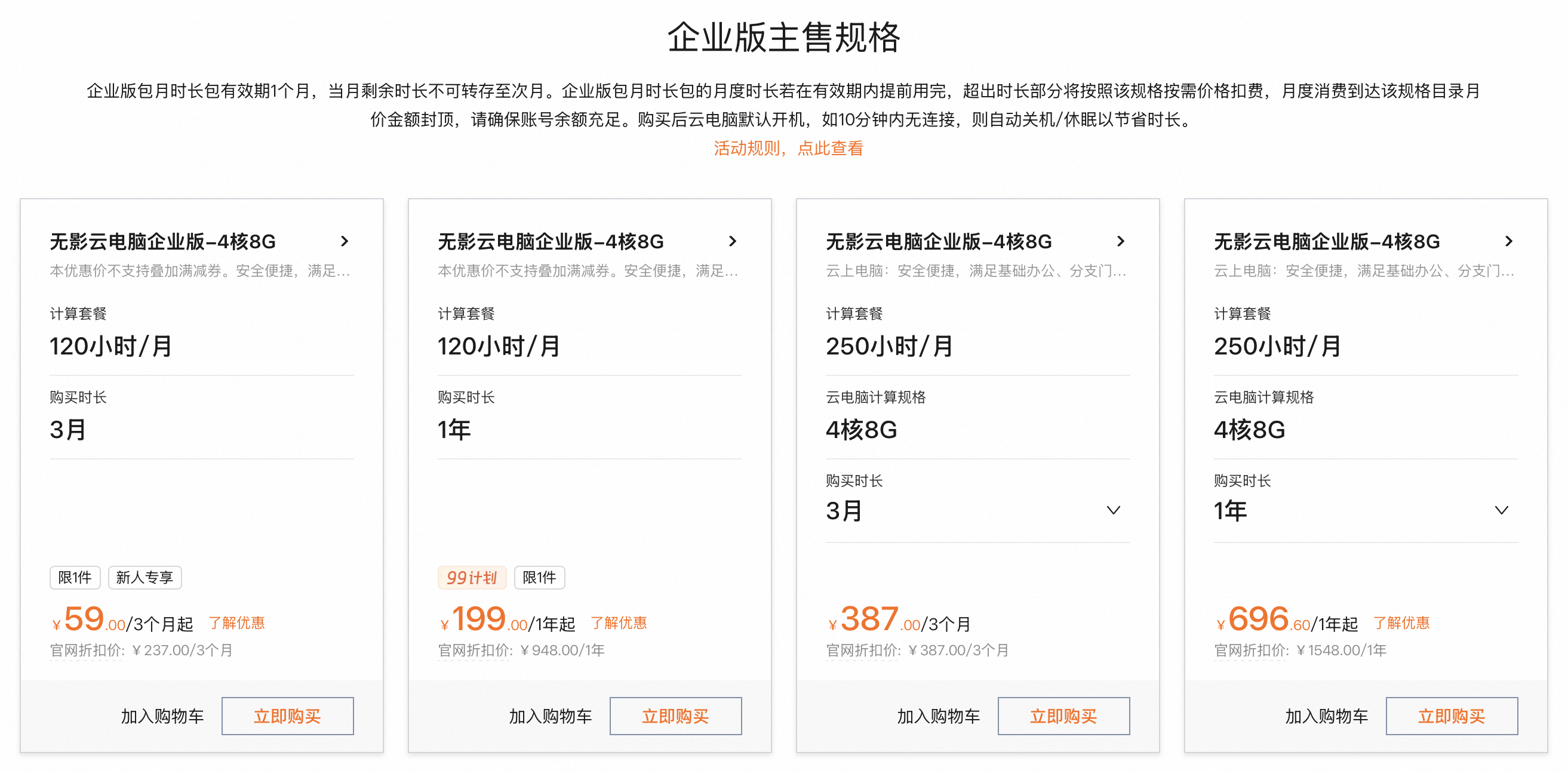
Image source: Alibaba Cloud
Not to mention the scalability of cloud computers. Chromebook is still a laptop with complete computing hardware, albeit with lower hardware configuration. Under cost constraints, Chromebook has virtually no scalability.
But cloud computers do not have such restrictions - users can easily "upgrade the hardware" of the computer in the cloud, and can even upgrade it on an hourly basis and "downgrade" the hardware when high-performance computing is not required, making hardware upgrades more flexible and effectively controlling overall costs.
It is undeniable that in the early stages of the development of the online education concept, Chromebook relied on extremely low costs to almost dominate the North American education market. However, in the face of the AI era and the rise of domestic cloud computers, Chromebook seems to be struggling.
So how should Chromebook adapt to change? Lei Technology believes that integration with cloud computers will be the ultimate destination for Chromebook, a low-configuration and low-cost netbook - cloud computers do not discriminate against hardware, and Chromebook, as a netbook, is precisely the cheapest hardware option on the market. Cloud computers are highly likely to replace traditional Chrome OS and form a complementary high-low configuration ecosystem with Chromebook.
Furthermore, considering that Google may be forced to sell Chrome, and in the absence of Chrome OS as the core, Google can directly rely on Chromebook's hardware to run the software ecosystem of Android + cloud computers, seamlessly transitioning to a new ecosystem at zero cost to maintain its presence in the education hardware industry.
It is certain that the demands of the AI era and the challenges of local computing power make Chromebook, a low-configuration hardware product, seem unable to keep pace with the times. In the coming years, Chromebook may be supplanted by cloud computers. After shedding the glory of Chrome OS and Google, it may return to its roots as a netbook and continue to thrive in the education market.
Source: Lei Technology



